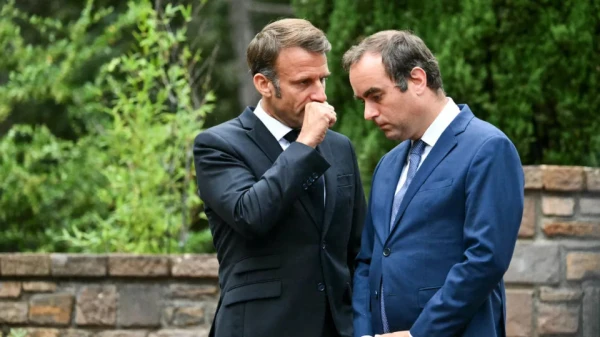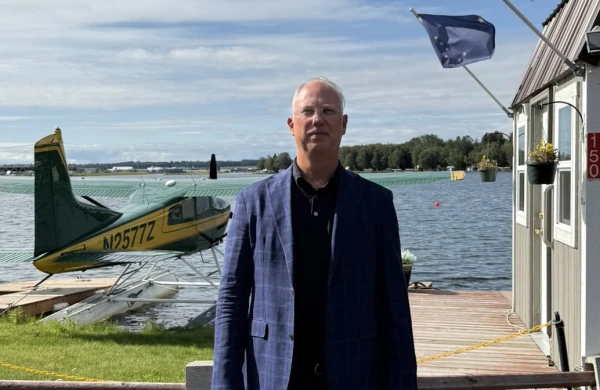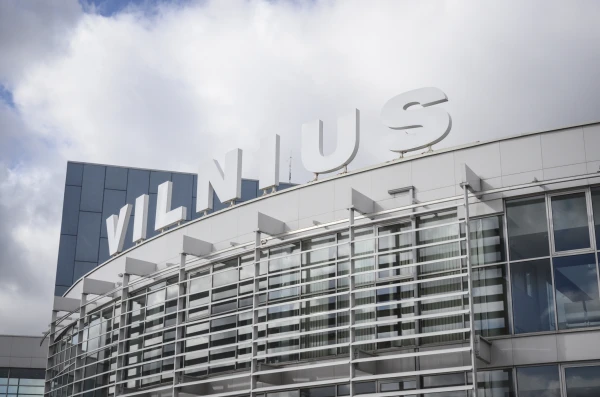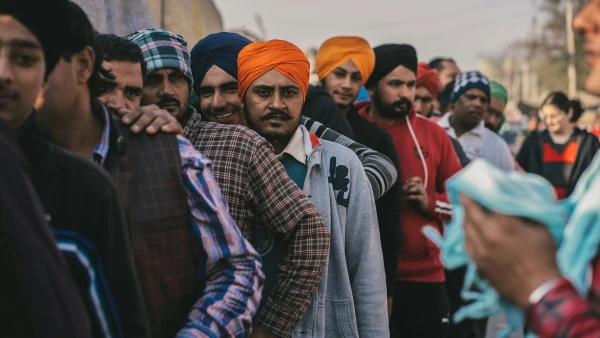
Even the moderate opposition sharply criticizes 'Macronism'.
A nationwide strike is underway in France. Unions and leftist parties are dissatisfied that the new Prime Minister, Élisabeth Borne, has not listened to their demands with enough respect. And they can afford this: the government, along with the French economy, is hanging by a thread. In the three weeks since his appointment, the new Prime Minister has been unable to guarantee his government support in parliament. By denying confidence to his predecessor, François Bayrou, the opposition from both the left and the right threatens to 'roll over' Borne as well. Behind this political deadlock lie more fundamental issues: a sluggish economy and a divided society that trusts no one.
The revolving door of prime ministers in France over the past couple of years is beginning to resemble the infamous post-war Fourth Republic, which is remembered as a model of loss of governance due to the petty selfishness of parliamentary parties. French President Emmanuel Macron appointed former Minister of Defense Élisabeth Borne as Prime Minister. This was a forced decision after the lower house of the French parliament dismissed yet another government on September 8. The advantage of the opponents of the current government was overwhelming: 364 to 194.
The victim of the deputies was 73-year-old Prime Minister François Bayrou, a veteran of the political scene, whose rich biography includes worthy participation in three presidential campaigns as a candidate, which seemingly allowed him to claim popular sympathy. However, his approval rating before the vote in the National Assembly did not exceed 13%, and the balance of political forces, which clearly understood the sentiments of citizens, left no hope for a favorable outcome. The sticking point was predictably the budget issue.
The latest government resignation essentially speaks of a deep political crisis that has no short and simple explanation. France has found itself in a deadlock of economic, institutional, and social problems, which is complicated by growing distrust of President Macron, whose powers, according to the idea of the Fifth Republic, are primarily intended to achieve national consensus, while a national divide is rather observed, writes The Insider.
The current crisis is unlikely to be fatal, despite alarming symptoms, but a proper diagnosis is necessary to find a way out of it. It is no coincidence that Borne immediately began the usual round of consultations with the main political forces in the National Assembly that her predecessors underwent. However, with each passing time, the situation only becomes more complicated; there are no simple and obvious solutions at her disposal.
The current crisis must be traced back to President Macron's decision to dissolve the National Assembly and hold early elections, which he made on the evening of June 9, 2024 — immediately after the results of the European Parliament elections, in which Marine Le Pen's RN party won convincingly.
It is difficult to say what Macron was counting on, but the new composition of the National Assembly, according to polls, promised nothing but an increase in the opposition and a reduction in the number of moderate factions. And that is exactly what happened. The balance of power that emerged after the elections was very unusual for the political life of France, where no one in parliament has an absolute majority of 289 seats, but there are three poles, roughly equal in representation.
These include the leftist NFP bloc (193 deputies), the centrist block of the presidential coalition (166 deputies), and Marine Le Pen's National Rally (RN) party along with its allies (142 deputies). There is also the Republicans (LR) party, which stands on center-right positions but criticizes Emmanuel Macron's policies (47 deputies).
At the same time, the NFP bloc was created as an electoral alliance with very significant internal disagreements, primarily between the Socialist Party (PS) and the radical 'Unsubmissive France' (LFI) of Jean-Luc Mélenchon. In these conditions, when the opposition is diverse and strong, it has been difficult for Macron to find a prime minister candidate who would satisfy both him and the National Assembly. This task has not been resolved so far.
An arithmetic approach shows that if it were possible to split the NFP leftist bloc and create a broad centrist coalition from the Socialist Party (PS) to the Republicans (LR), it would lack only 10 votes for an absolute majority — and these 10 votes could probably be found somewhere. But politically, such a calculation is extremely problematic.
Even the moderate opposition PS and LR built their rhetoric on sharp criticism of 'Macronism' in all its manifestations, and these parties cannot agree to support a prime minister from the presidential team without including significant elements of their program in the government's plans. Nevertheless, the differences in approaches, for example, to the principles of the new budget, are so great that consensus in such a broad coalition is unlikely to be achievable.
Adding fuel to the fire is a specific historical tradition: there is no tradition of seeking compromise between parliamentary factions in French political culture; instead, the approach of 'all or nothing' prevails.
Is there a chance of a voluntary resignation of the extremely unpopular Macron and early presidential elections, as called for not only by the LFI but also by some voices in the less radical opposition? They believe that a way out of such a deadlock within the institutions of the Fifth Republic is possible only through the election of a new president. At the same time, it is evident that those who are perceived as better prepared for an electoral campaign right now are the loudest proponents of this proposal.
However, such a scenario currently seems doubtful. Macron himself is unlikely to consider his mission exhausted, despite his unpopularity among the French, and a forced resignation is practically impossible, as it requires a unique procedure and a two-thirds vote in both houses of parliament.
The status of the president of the Fifth Republic, elected by direct vote of citizens, places him in an exceptional position, endowing him with legitimacy that cannot be undermined even by the most tumultuous events in the National Assembly.
There are two theoretical options for early elections. First, if Macron himself, for some reason, wants to further escalate political life and announces his resignation to invite citizens to end the crisis by electing a new president. Second, if sharp and massive protests capable of paralyzing the country suddenly begin in France, as called for by the left-radical opposition. As of today, such a development seems extremely unlikely.
Permanent Economic Crisis
The French economy is growing, but slowly — current forecasts suggest GDP growth will be less than 1%. The main challenges for the economy remain a budget deficit of 6.1% of GDP (not a record for France, but the highest in the Eurozone) and public debt at 115.6% of GDP (this is less than five years ago, but still the third largest relative public debt in Europe after Italy and Greece). Servicing public debt today is the second largest item of budget expenditure after spending on the education system. Any cabinet of ministers will have to deal primarily with drafting a balanced budget.
François Bayrou attempted to propose a complex budget, made on the principle of patching holes and providing for a combination of revenue increases (through additional tax revenues and the cancellation of two public holidays) and expenditure reductions of about €44 billion (through cuts to several social programs and a temporary suspension of inflation indexing for pensions and benefits), necessary to reverse the crisis trend. The seemingly sound idea of the government was that all layers of the population should make their small contribution, but in reality, it turned into dissatisfaction among all groups of deputies, both from the right and the left.
Meanwhile, Fitch Ratings downgraded France's sovereign rating from AA- to A+, and the cost of borrowing to finance public debt has become higher than that of Greece or Italy. The economic growth forecast for 2025 is 0.8%. European capitals are watching with concern France's inability, as the second-largest economy in the EU, to manage its budget responsibly. This is not even about complying with the 3% deficit norm, but at least about breaking the negative trend and having a plan to normalize the budget in the foreseeable future.
Fitch downgraded France's sovereign rating to A+, making its public debt financing more expensive than that of Greece or Italy. German Chancellor Friedrich Merz, cautiously choosing his words, clearly expressed concern about the situation in France, whose political weight in Europe implies a responsible attitude towards its obligations. But if François Bayrou's plan failed in the National Assembly, despite the obvious gravity of the situation, his successor, Élisabeth Borne, may have to propose a more modest reduction in spending, which, in turn, will freeze the budget crisis and fail to convince creditors of the seriousness of the French government's intentions. The first victim of political disagreements is always the budget. The ruling parties usually follow.
State of Society
In 2019, a book by one of France's leading sociologists, Jérôme Fourquet, titled "Archipelago France" was published, which probably evokes some associations for Russian-speaking readers. However, it does not discuss a system of camps but rather the numerous lines of division in French society, which lead it to a state of separate islands, poorly connected to each other.
Society was divided before, which led to the split between the left and the right, but today its fragmentation is such that it is difficult to even identify the main nodes of tension within it. Moreover, the real problems in society may not coincide with what it perceives as the main challenges.
For example, the issue of migration particularly worries the French (as well as many other countries): 79% of citizens support tightening migration policy, which is 4% more than just a year ago. At the same time, objectively, there is no influx of migrants in France; their share has increased from 10% in 1990 to 13% in 2025, while GDP per capita (in constant prices) has risen from $40,000 to $56,000 over the same period, and the homicide rate per 100,000 people has nearly halved (from 2.3 to 1.3), although there has been a slight increase in recent years.















Leave a comment